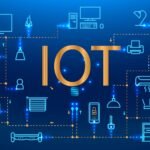The integration of the Internet of Things in healthcare is revolutionizing the way patients receive care and the way medical research is conducted. The use of connected devices and sensors is helping healthcare providers to collect and analyze large amounts of data that can be used to improve patient outcomes and advance medical research. In this article, we will explore how IoT is transforming patient care and medical research.
Introduction to Internet of Things in Healthcare
Table of Contents
The concept of Internet of Things refers to the interconnectivity of physical devices that can exchange data with each other through the internet. In healthcare, Internet of Things devices can include wearables, smart sensors, and other connected devices that monitor patients’ health and collect data. The use of Internet of Things in healthcare is still in its early stages, but it has already shown promise in improving patient outcomes and medical research.
How Internet of Things is Transforming Patient Care

Internet of Things devices can help healthcare providers monitor patients’ health in real-time, which can lead to faster and more accurate diagnoses. Wearable devices, such as smartwatches and fitness trackers, can monitor vital signs, such as heart rate and blood pressure, and send this data to healthcare providers. This data can be used to detect early warning signs of health issues and can help healthcare providers intervene before a condition worsens.
IoT devices can also improve patient engagement by providing patients with more control over their healthcare. For example, patients can use smartphone apps to monitor their health and track their progress towards their healthcare goals. This can help patients feel more engaged in their healthcare and can lead to better patient outcomes.
How IoT is Advancing Medical Research
Internet of Things devices can also help medical researchers collect large amounts of data quickly and efficiently. Researchers can use Internet of Things devices to collect data from patients in real-time, which can provide a more accurate picture of a patient’s health over time. This data can be used to identify trends and patterns in patients’ health, which can help researchers develop new treatments and therapies.
Internet of Things devices can also help medical researchers collect data from a larger and more diverse patient population. This can lead to more robust research studies and can help researchers develop treatments and therapies that are more effective for a wider range of patients.
Challenges and Concerns with Internet of Things in Healthcare
While Internet of Things has the potential to transform patient care and medical research, there are also concerns about the privacy and security of patient data. Healthcare providers and researchers must ensure that patient data is protected and that only authorized individuals have access to it. Additionally, there are concerns about the accuracy and reliability of Internet of Things devices, and healthcare providers and researchers must ensure that the data collected by these devices is accurate and reliable.
Read More:Smart Homes: How Internet of Things Technology is Revolutionizing Our Living Spaces in 2023
Conclusion
Internet of Things is transforming the way healthcare is delivered and medical research is conducted. The use of connected devices and sensors is helping healthcare providers collect and analyze large amounts of data, which can be used to improve patient outcomes and advance medical research. While there are challenges and concerns with IoT in healthcare, the potential benefits are significant.
FAQs
- What is Internet of Things? Internet of Things refers to the interconnectivity of physical devices that can exchange data with each other through the internet.
- How is Internet of Things transforming patient care? Internet of Things devices can help healthcare providers monitor patients’ health in real-time, which can lead to faster and more accurate diagnoses. Internet of Things devices can also improve patient engagement by providing patients with more control over their healthcare.
- How is IoT advancing medical research? IoT devices can help medical researchers collect large amounts of data quickly and efficiently. This data can be used to identify trends and patterns in patients’ health, which can help researchers develop new treatments and therapies.
- What are the concerns with Internet of Things in healthcare? There are concerns about the privacy and security of patient data, as well as concerns about the accuracy and reliability of Internet of Things devices.
- How can healthcare providers and researchers ensure the safety and accuracy of Internet of Things devices? Healthcare providers and researchers can ensure the safety and accuracy of Internet of Things devices by following best practices for data privacy and security, and by conducting rigorous testing and validation of Internet of Things devices.
- How is Internet of Things expected to evolve in healthcare in the future? Internet of Things is expected to continue to evolve in healthcare, with more advanced sensors and devices being developed that can collect even more data on patients’ health. Additionally, AI and machine learning are expected to be integrated with Internet of Things devices to provide more personalized and effective patient care.
- How can patients benefit from Internet of Things in healthcare? Patients can benefit from IoT in healthcare by having more control over their healthcare and by receiving more personalized and effective care. Additionally, Internet of Things devices can help patients monitor their health more effectively and can provide early warning signs of health issues.




